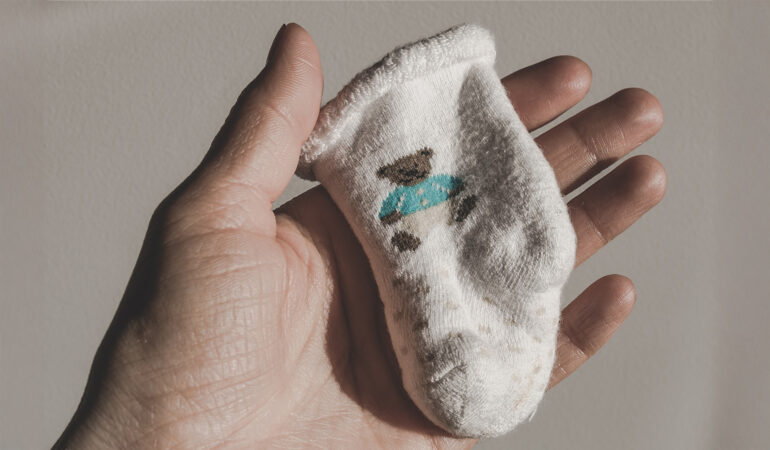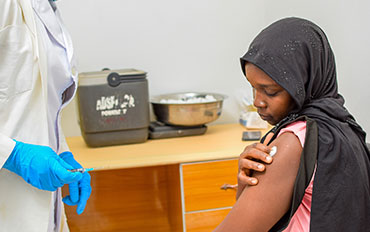In the United States, the issue of reproductive health has been at the center of much of the political debate about women’s rights, particularly since the Supreme Court decided to overturn Roe v. Wade on June 24, 2022, and more recently with the government’s administration change. Independently of political affiliation, marriage and family therapists (MFTs) are still tasked with supporting individuals and families navigating the effects of early pregnancy loss in the complex legal and political landscape of women’s reproductive care. Yet, even as the legal and political climate continues to shift, early pregnancy loss remains an invisible experience to several people in the workplace environment.
At its core, pregnancy loss or miscarriage is a deeply personal experience. For many, the experience of this type of loss is an unwelcome reminder of the well-established boundaries between the personal and the professional arena, which are often blurred in environments where personal disclosure is either accepted or dismissed. In this process, women and partners who are in the workforce while going through pregnancy loss are most likely having to navigate their experiences without the appropriate support and accommodations. In this case, fear of workplace discrimination often prevents workers from discussing their experiences.

According to a study by Meaney et al. (2017), people who told their employers they had miscarried received insufficient support or unhelpful mixed responses, which tends to exacerbate feelings of vulnerability about disclosing their stories. In the absence of open communication and organized support networks, workers can feel pressured to repress their sorrow, which could get in the way of processing the experience. Furthermore, a reality that further complicates the experience of pregnancy loss is the lack of accommodations that would support emotional and physical recovery, as there are no official work protections in place for workers in the United States on how to proceed with pregnancy loss.
In 1978, the Pregnancy Discrimination Act (U.S. Equal Employment Opportunity Commission, 1978, sec. 701), was put into effect as a promising initiative to address gender-specific needs in the workplace. This law prohibited discrimination based on pregnancy and childbirth. While this initiative seemed to be a critical step in protecting employees, societal expectations to ‘move on’ from personal grief due to miscarriage (Browne, 2024) still have a deep impact on the lives of those who are in the thick of this experience.
Important factors in the experience of pregnancy loss, such as the limited leave regulations and a lack of official recognition for pregnancy loss, frequently force women to return to work too soon (Murphy & Cacciatore, 2017). Returning to work is associated with worsening emotions of loneliness and grief for women according to several researchers (Marker & Ogden, 2003). In addition to escalating mental anguish in many cases, these gender challenges often are paired with environments that most likely prioritize productivity ahead of workers’ well-being.
A 2021 study revealed that over 40% of women experience at least one pregnancy loss during their reproductive years.
If we were to be cognizant of our work environments, we ask you to participate in the following exercise. If you knew the reality that one in four women will experience pregnancy loss (Simelela, 2025), often in the first trimester, would the person sitting next to you during staff meetings or in the Zoom box be more than a statistic? A 2021 study published in JAMA Internal Medicine revealed that over 40% of women experience at least one pregnancy loss during their reproductive years (Rangel et al., 2021). If these statistics are to be taken seriously, they represent real people (e.g., colleagues, friends, and family members) who are navigating pregnancy loss while trying to fulfill their professional roles. How might this awareness change the way we show up for ourselves and each other in our position as therapists?
The workplace dilemma and the neglected corners of human suffering
All systems depend on coordination between the people who are participating in them to follow the taken-for-granted habits that place celebratory moments (e.g., baby showers, milestone achievements, etc.) as the standard, while often neglecting that loss and experiences of pain are also part of the human experience and to be acknowledged. Feasey (2019) highlights many women report feeling unsupported or invisible in the workplace following pregnancy loss. At the same time, partners who are in the workforce may also experience similar distress that is often overlooked through daily interactions as they also wrestle with making meaning of their experiences.
Consider this, if women are more likely to face discrimination or feel pressured to downplay their loss due to a workplace culture, then keeping the silence might be the biggest contributor to perpetuating the lack of policies that can help women and partners navigate their experiences with loss. Unsurprisingly, in a study by the National Women’s Health Network (2019), 53% of women reported returning to work too soon after a miscarriage due to fear of stigma or lack of proper leave policies.
As MFT systemic practitioners, we aim to contribute to resisting some of the traditional norms of workplace engagement by exploring how each of us responded to the pressures of behaving in prescribed ways when faced with early pregnancy loss. Each of us has had unique experiences navigating workplaces that still subscribe to ideals of professionalism—where the personal is often kept in the shadows. We invite you in this exploration to reflect on personal but also professional implications for practice.
“Is this good news or bad news?” (D. Abraham)
Early in my career, I devoted most of my time to working long hours, driving around San Diego County to offer school-based therapy services in hopes I was helping my clients and families living through various challenges. I remember feeling the weight of being responsible for reporting positive therapeutic outcomes not only in my clinical notes to insurance panels but also during weekly staff meetings. The majority of my clients were young children and teens struggling with suicidal behaviors as they required intense coordination of care among several providers.
During my second year in that position, I found out I was pregnant. I was caught off guard by the subtle, and not-so-subtle ways people responded to the news, considering I was in my 30s and was not legally partnered. I remember how a simple visit to a medical provider turned into a moment of deliberation when the physician asked, almost rhetorically, if my pregnancy was good news or bad news.
All of these reactions only highlighted the unspoken assumptions as well as the difficulties women experience when disclosing their pregnancy in the workplace.
Sharing with a few colleagues my early pregnancy ‘news’ was met with a mix of reactions. At times, awkward silences, as though my personal reproductive developments somehow were a disruption of my life’s work as a therapist. Some colleagues felt comfortable broaching the question: “What are you going to do?” as if they became active participants in my decision-making moments. All of these reactions only highlighted the unspoken assumptions as well as the difficulties women experience when disclosing their pregnancy in the workplace (Jones, 2017).
Eleven weeks into my pregnancy, something didn’t feel right. After some lab work, I received a call from my physician letting me know: You are having a miscarriage. While on the phone the physician offered me solace in some statistics mentioned in this writing. While the next steps were discussed, the call ended quickly but the felt responses to that experience lasted for a long time. I remember feeling lost, unsure of where to go or who to talk to, a common experience (Meaney et al.,2017). Considering how to care for myself involved the realization I needed to inform work that I would not be able to come to the clinic the next day. Should I have called my supervisor or HR? At that moment, I was in shock, but the role of being a therapist still superseded the responsibility to take care of my own health. I still believed I had a duty to be available to my clients even though my physician advised me to take 30 days off from work. I felt immense pressure to return as described in (Donaghy et al., 2024), and ignored medical advice to come back to work just four days after going through my miscarriage.
When I returned, I fit just right back into the system of performing for productivity—as if I had never left. It was therapy business as usual, taking care of others’ emotional needs while neglecting my own. Reflecting back, the silence, isolation, and pressure experienced by many women who go through pregnancy loss (Murphy & Cacciatore, 2017) was nothing I was aware of during the pain of my experience. Although I was surrounded by mental health professionals, there was no safe space to speak about what was happening in my personal life.

My workplace became increasingly difficult to be in when the administration started to organize a baby shower for one of my colleagues who was celebrating the anticipated arrival of her child. How I responded to being further placed in the shadows of my experience—where grief was not an invited guest—helped me (and perhaps others) to make meaning of more than I was hoping for. As I contributed to my colleague’s celebration of her life milestone, I found the space to give each of the staff members a small handmade candle with a message to acknowledge I was in grief because of pregnancy loss. As I write these words, I can imagine how that gesture, though subtle, spoke volumes confronting the unspoken tension that exists when grief is not given space.
“I need to keep going…” (I. Solorzano)
During the fourth year of my doctoral program, I was juggling the final edits of my dissertation, internships in public policy and supervision, a full client caseload, and completing licensure hours. To say I was busy would be an understatement. During this time, I was hit with a sudden, searing pain. Assuming it was a menstrual cycle issue or an ovarian cyst rupture, I visited my OB-GYN. That week, I learned I had miscarried at three and a half weeks along. Stunned, I sat in silence as my doctor reassured me while also dismissing what just happened. “You weren’t that far along, and you weren’t trying to get pregnant.” While I didn’t feel guilty as I knew it wasn’t my fault, I left the office unable to process the experience. Silence settled in my throat.
I shared the news with my partner, who expressed more visible grief than I could. After just three days off, I returned to my hectic schedule, telling myself, “It wasn’t a big deal; I need to keep going.” But I recognized this silence. At 15, I had faced it when I became pregnant and, out of fear of judgment, chose not to share that I was pregnant and miscarried except with my doctors. I had buried my emotions once again, silenced by the stigma surrounding teenage pregnancy, a stigma that views teenage pregnancy as violating societal constructs of “normalcy” and discourages young women from seeking support (Moseson et al., 2019).
Now, at 34, I found myself invalidating and compartmentalizing my grief and experience again, delegitimizing the miscarriage I had experienced. I believe the dismissive comments from my doctors and cultural norms surrounding “ideal” pregnancies reinforced this. Westernized ideologies and constructs about “normative” pregnancy experiences (Browne, 2024) have a way of delegitimizing early miscarriage and the grief that follows this type of loss (Cassidy, 2023).
Once again, I found myself navigating disenfranchised grief. This time, I chose to resist being further recruited of being in silence with my pain or accepting sole responsibility to overcome adversity and grief in a “swift manner” as Reid et al. (2013) described to be a common experience in pregnancy loss. With my mentor’s encouragement, I decided not to simply “bounce back” but to take time to process my experience.
I opened a dialogue about pregnancy loss within my professional environment and shared my story to socialize my pain. By normalizing this experience, I refused to bury a story in the collection of untold pregnancy losses. It was invigorating to be in conversations with my peers and develop awareness together that is much needed to break cycles of stigma. It was a reminder that I don’t have to simply “move on” or self-censor. By doing this, I helped to create a space where I, too, could face this kind of loss in solidarity with others.
“There was no ritual or acknowledgment for our loss.” (M. Shahisaman)
When my wife and I experienced a miscarriage, I was struck by the deafening silence that surrounded the event, both socially and professionally. There was no ritual or acknowledgment of our loss. Despite the emotional toll, I felt pressured to compartmentalize my grief, maintaining the persona of a capable therapist and Dean in a demanding work environment. This experience mirrors findings from Bardos et al. (2015), who highlight that the lack of workplace support for pregnancy loss often leads to profound isolation and increased psychological distress. For my wife, the physical and emotional toll was compounded by a workplace culture that didn’t allow her to process her loss openly. For me, my grief as her partner felt invisible: a secondary, almost invalid experience. Yet, the psychological consequences of miscarriage ripple outward to partners and families, underscoring the need for workplace structures that account for these broader impacts (Hutti et al., 2015).
My approach to grief and silence, particularly in relation to pregnancy loss, has been significantly influenced by my dual cultural heritage. In Persian culture, grief is often communal, observed through rituals and collective acknowledgment. It provides an avenue for shared mourning and emotional release. In contrast, American workplaces, particularly academic and professional environments, prioritize efficiency and resilience over the emotional realities of loss. This cultural dichotomy shaped how I navigated my experience as a spouse grieving my wife’s miscarriage, especially within workplaces that largely invisibilize pregnancy loss. Societal norms around pregnancy loss, particularly the stigma of silence, often marginalize grief and leave individuals feeling unsupported (Hutti et al., 2015). These norms perpetuate the idea that miscarriage is a private issue, further isolating those impacted.
I decided to resist the silence and reshape the narrative around miscarriage within my professional sphere. At the private performing arts college where I serve as Dean, I initiated a dialogue with faculty about reproductive health and loss. During a faculty meeting, I shared my personal experience, not for sympathy but as a call to action to rethink how we approach pregnancy loss in professional settings. Bardos et al. (2015) emphasize that open conversations in the workplace help create an inclusive and empathetic environment, reducing stigma and promoting healing. Framing miscarriage as a common human experience rather than an isolated, private tragedy, I advocated for structural changes, such as bereavement leave policies for pregnancy loss and inclusive language in workplace communications.
In my therapy practice, I adopted a similar approach to dismantle the stigma surrounding miscarriage and unacknowledged grief. Many of the individuals I work with in addiction treatment struggle with unresolved losses that are minimized or silenced by societal norms. Normalizing grief through shared vulnerability often paved the way for clients to confront and process their own experiences. Hutti et al. (2015) underscore the importance of validating grief as a pathway to psychological well-being and healthier relationships. For children dealing with anxiety and trauma, I incorporated art and storytelling into therapy sessions, offering safe avenues to explore themes of loss. These creative methods often served as conduits for broader family discussions, fostering healthier communication dynamics and breaking cycles of unspoken pain.
Our task: Making forward movement as systemic practitioners
We believe it takes more than just speaking up to break the taboos about pregnancy loss. We believe that weaving stories of loss and connecting them with our collective experiences has the potential to return the qualities of humanity into being human. We bring forward these stories because being part of a de-personified statistic such as pregnancy loss is an experience that is so common in therapy rooms, not only with the families we work with but also among ourselves. We acknowledge that in hopes of creating meaningful differences, especially during these significant times in 2025—where we hear accounts of people losing hope and being scared of the reality in the United States—we need to participate in the changes to which we want to contribute.
We collectively explored how each of us resisted the prescribed ways of navigating pregnancy loss in the workplace. By refusing to stay silent and choosing to share our stories, we went against the cultural and institutional norms that often place grief and loss in the shadows of experience. Through this process, we hope to highlight alternative ways to be in community as well as to offer an insider view on how we uniquely developed environments to acknowledge an experience that is often overlooked and dismissed.
There is power in sharing stories that often are buried in silence. As MFTs, we are tasked with helping with the unsuffering of our clients who seek help when they experience pain. We bring attention to a systemic gender issue that is common in the workplace to broaden awareness for policymakers, employers, colleagues, friends, and everyone who is committed to not only challenging injustices but also contributing to more equitable environments. From this understanding, we hope that one in four women and their partners can be held by a community of support instead of hiding in neglected corners of the world.
Photo Credits: istock/Larysa Shcherbyna/fizkes /millann

Danna Abraham, PhD, LMFT, is an AAMFT Professional member holding the Approved Supervisor and Clinical Fellow designations and Assistant Professor at the California School of Professional Psychology at Alliant International University. In her work, she focuses on helping therapists in training develop into their preferred professional identities. She is the director of the Research Initiative for Storytelling Engagement (RISE) lab where her research focuses on exploring gender inequalities in higher education. dayanne.abraham@alliant.edu www.theriselab.com

Ixchel Solorzano, PhD Candidate, MA, is a practicing licensed marriage and family therapist in San Diego and PhD candidate at Alliant International University. Solorzano is an AAMFT member holding the Clinical Fellow designation and an Approved Supervisor Candidate. In her work as a therapist, she is dedicated to supporting clients through the journey of trauma work, with a particular focus on survivors of sexual trauma. isolorzano@alliant.edu https://cultivatesandiego.com/ixchel-solorzano

Mohammad Shahisaman, PhD Student, MA, is a therapist and the Dean of a performing arts college. He specializes in addressing anxiety, trauma, and addiction. Mohammad is also a member of AAMFT. His therapeutic approach often integrates the use of creative arts, inspired by his exploration of innovative methods to aid in symptom relief for trauma patients. mshahisaman@gmail.com |www.therapywithmo.com
Bardos, J., Hercz, D., Friedenthal, J., Missmer, S. A., & Williams, Z. (2015). A national survey on public perceptions of miscarriage. Obstetrics & Gynecology, 125(6), 1313-1320.
Browne, V. (2024). How to defeat miscarriage stigma: From ‘breaking the silence’ to reproductive justice. Feminist Theory, 26(1), 203-223. https://doi.org/10.1177/14647001241266173
Cassidy, P. R. (2023). The disenfranchisement of perinatal grief: How silence, silencing and self-censorship complicate bereavement (a mixed methods study). OMEGA – Journal of Death and Dying, 88(2), 709-731. https://doi.org/10.1177/00302228211050500
Donaghy, J. A., Lewis, S., Keep, M., & Carland, J. E. (2024). “I was told I either came back or I lost my job”: a qualitative study of the experiences of Australian women navigating the return-to-work following early pregnancy loss. Community, Work & Family, 1-15. https://doi.org/10.1080/13668803.2024.2350550
Hutti, M. H., Armstrong, D. S., Myers, J., & Hall, L. A. (2015). Grief intensity, psychological well-being, and the intimate partner relationship in the subsequent pregnancy after a perinatal loss. Journal of Obstetric, Gynecologic & Neonatal Nursing, 44(1), 42–50.
Jones, K. P. (2017). To tell or not to tell? Examining the role of discrimination in the pregnancy disclosure process at work. Journal of Occupational Health Psychology, 22(2), 239-250. https://doi.org/10.1037/ocp0000030
Maker, C., & Ogden, J. (2003). The miscarriage experience: More than just a trigger to psychological morbidity? Psychology & Health, 18(3), 403-415. https://doi.org/10.1080/0887044031000069343
Meaney, S., Everard, C. M., Gallagher, S., & O’Donoghue, K. (2017). Parents’ concerns about future pregnancy following stillbirth: A qualitative study. Health Expectations, 20(4), 555-562.
Moseson, H., Mahanaimy, M., Dehlendorf, C., & Gerdts, C. (2019). “…society is, at the end of the day, still going to stigmatize you no matter which way”: A qualitative study of the impact of stigma on social support during unintended pregnancy in early adulthood. Plos One, 14(5), 1–14. https://doi.org/10.1371/journal.pone.0217308
Murphy, S., & Cacciatore, J. (2017). The psychological, social, and economic impact of stillbirth on families. Seminars in Fetal and Neonatal Medicine, 22(3), 129-134.
Rangel, E. L., Castillo-Angeles M., Easter, S. R., et al. (2021). Incidence of Infertility and Pregnancy Complications in US Female Surgeons. JAMA Surg. 156(10), 905-915. doi:10.1001/jamasurg.2021.3301
Reid, T. A., Kynn, J., Smith-Darden, J. P., & McCauley, H. L. (2023). Resilience in the context of sexual violence: A scoping review. Journal of Family Violence, 39(5), 913–929. https://doi.org/10.1007/s10896-0U.S.
Simelela, N. (2025). The unacceptable stigma and shame women face after baby loss must end. World Health Organization. Retrieved from https://www.who.int/news-room/spotlight/why-we-need-to-talk-about-losing-a-baby/unacceptable-stigma-and-shame
U.S. Equal Employment Opportunity Commission. (1978). Pregnancy Discrimination Act of 1978. U.S. Equal Employment Opportunity Commission. https://www.eeoc.gov/statutes/pregnancy-discrimination-act-1978
Other articles
Still Wrestling with Anxiety? Why Deep Breaths and Mindset Shifts Are Not Enough
Most people experience moments of anxiety—whether about politics, work, finances, health, or relationships. While occasional anxiety is a natural part of life, and even a helpful motivator sometimes, it becomes problematic when its intensity and frequency interfere with daily functioning—a presentation currently on the rise.
Marie-Nathalie Beaudoin, PhD
Helping Youth Struggling with Anxiety
Anxiety in youth can manifest in various ways: some may become tearful, others agitated, and still others might withdraw. Changes in youth’s typical behaviors often signal that they are preoccupied with something difficult to understand, overcome, or envision.
Marie-Nathalie Beaudoin, PhD
A Call to Action: Supporting Humanitarian Aid Workers Through Collective Grief and Career Crisis
Over the past two weeks, I’ve logged into session after session, greeted not by familiar updates about the challenges of humanitarian work, but by tears and stunned silence. The same refrain plays out across borders: ‘We’ve all been let go.’
Jason J. Platt, PhD



